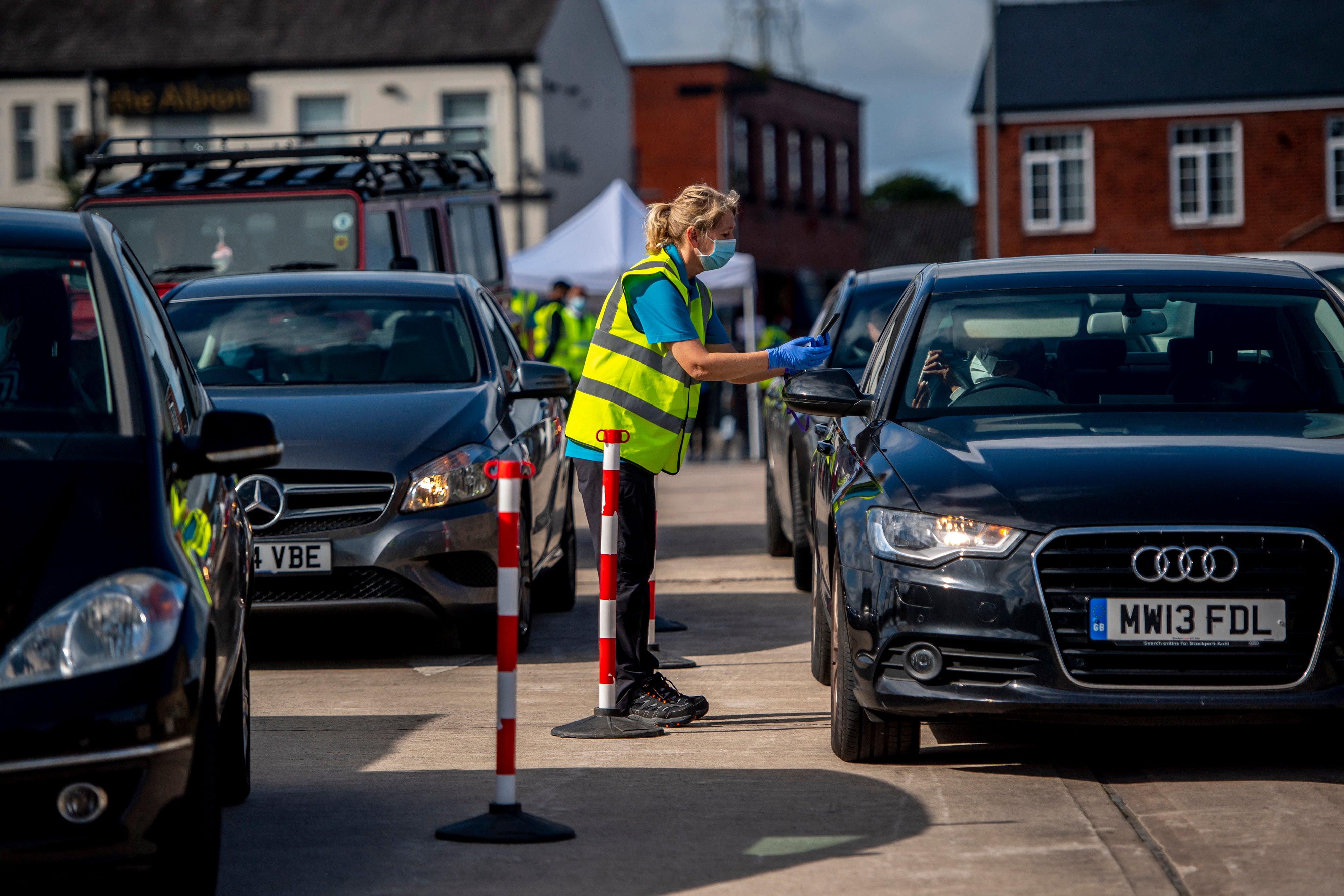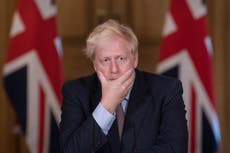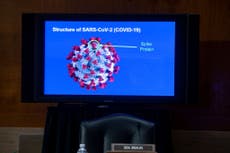Coronavirus: Christmas celebrations in jeopardy as UK Covid restrictions set to stay in place
Worsening weather will mean a ‘difficult period’ until the spring, chief medical officer says – as ‘rule of six’ confirmed for gatherings

Your support helps us to tell the story
From reproductive rights to climate change to Big Tech, The Independent is on the ground when the story is developing. Whether it's investigating the financials of Elon Musk's pro-Trump PAC or producing our latest documentary, 'The A Word', which shines a light on the American women fighting for reproductive rights, we know how important it is to parse out the facts from the messaging.
At such a critical moment in US history, we need reporters on the ground. Your donation allows us to keep sending journalists to speak to both sides of the story.
The Independent is trusted by Americans across the entire political spectrum. And unlike many other quality news outlets, we choose not to lock Americans out of our reporting and analysis with paywalls. We believe quality journalism should be available to everyone, paid for by those who can afford it.
Your support makes all the difference.The public has been warned a new crackdown on socialising is likely to last until Christmas and beyond, throwing their festive celebrations into jeopardy.
Worsening weather will mean a “difficult period” until the spring, the chief medical officer predicted – suggesting the ban on all gatherings of more than six people in England, indoors or outdoors, will remain in place.
The restrictions are not expected to be reviewed for three months – until the eve of the Christmas period – amid worrying new evidence of Covid-19 infection spikes among young people.
Boris Johnson tried to strike a positive note, claiming some aspects life could still be “back to normal by Christmas”, saying: “We are aiming for that, we are driving for that.”
But Chris Whitty, the medical chief, laid bare the reality, warning: “The period between now and spring is going to be difficult because this is a respiratory virus.”
He added: “People shouldn’t just see this as a very short term thing, they should see it over the next period. But I think putting an exact time on it is, I think, very difficult.”
As he spoke, it was revealed that the number of new Covid-19 infections had risen again – to 2,659 over the latest 24-hour period – but with only 8 further deaths over the last 28 days.
Unveiling the new “rule of six”, the prime minister also announced:
* A legal duty on pubs, restaurants and other venues to request contact details of every customer – with £1,000 fines for failing to comply.
* That passengers travelling to the UK will need to provide contact details before they depart, while the Border Force will step up enforcement with quarantine rules.
* The brakes will be slammed on plans for trials of larger audiences in venues later this month, with a similar review of the hoped-for return of fans to stadiums from 1 October.
* “Covid-secure marshals” will be introduced to enforce social distancing in town and city centres, helping local authorities.
“If we are to beat the virus then everyone, at all times, should limit social contact as much as possible,” Mr Johnson said in a rare press conference.
“So in England, from Monday, we are introducing the rule of six. You must not meet socially in groups of more than six – and if you do, you will be breaking the law.
“This will apply in any setting, indoors or outdoors, at home or in the pub. The ban will be set out in law and it will be enforced by the police – anyone breaking the rules risks being dispersed, fined and possibly arrested.”
Mr Johnson also floated the idea of rapid and widespread tests, to enable people to enter venues, while admitting to problems of “technology”, “resources” and “logistical challenges”.
The divide with his chief medical officer appeared clear, as Mr Whitty said of the current testing problems: “Constraints are not magically going to disappear.”
Patrick Vallance, the chief scientific adviser, echoed that caution, warning: “We would be wrong to assume this was a slam dunk.”
Infection rates among young people aged 20-29 in the UK have increased to more than 41 per 100,000 and were “going up much more rapidly” over the past few days, Mr Whitty said.
From an average of 12.5 cases per 100,000 in the UK just a week ago, infection rates have shot up to 54.5 among the 19-21 age group – and 48 for 17 and 18-year-olds.
Overall, the UK infection rate is running at 19.7 per 100,000, on the brink of the threshold of 20 above which countries are considered for quarantine restrictions.
But, asked if Christmas was now “cancelled”, a more upbeat Mr Johnson said: “I'm still hopeful, as I've said before, that in many ways we could be able to get some aspects of our lives back to normal by Christmas.”
He again raised hopes of “a kind of passport, a freedom to mingle with everybody else who is similarly not infectious” – even though that project of mass testing is officially dubbed “Operation Moonshot”.
“We are aiming for that. We are driving for that. As I have said ... we cannot be 100 per cent sure that we can deliver that in its entirety.”





Join our commenting forum
Join thought-provoking conversations, follow other Independent readers and see their replies
Comments